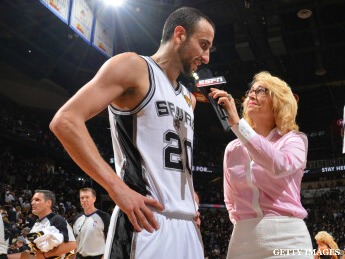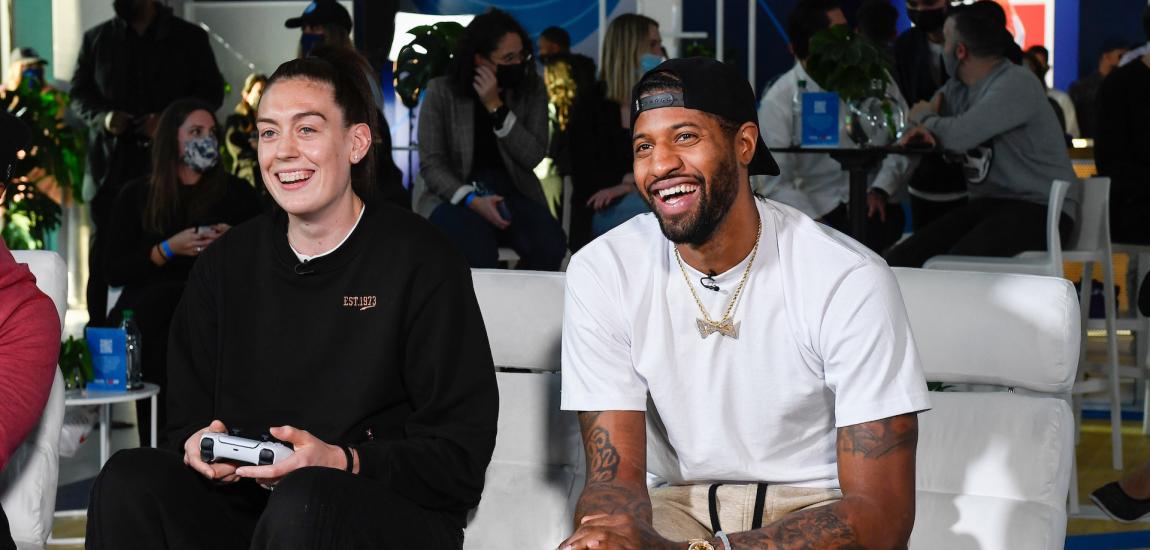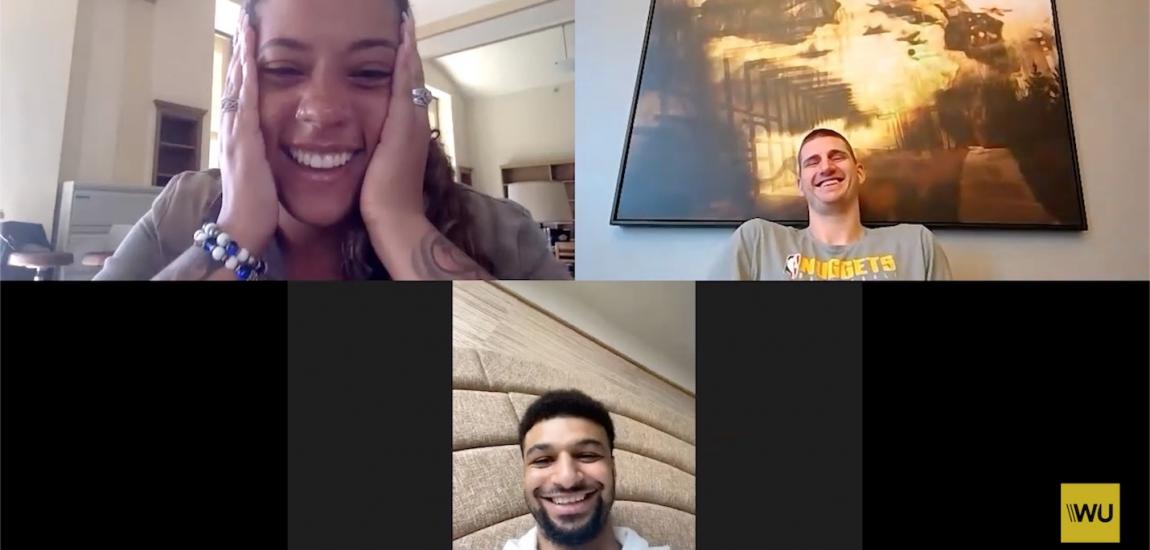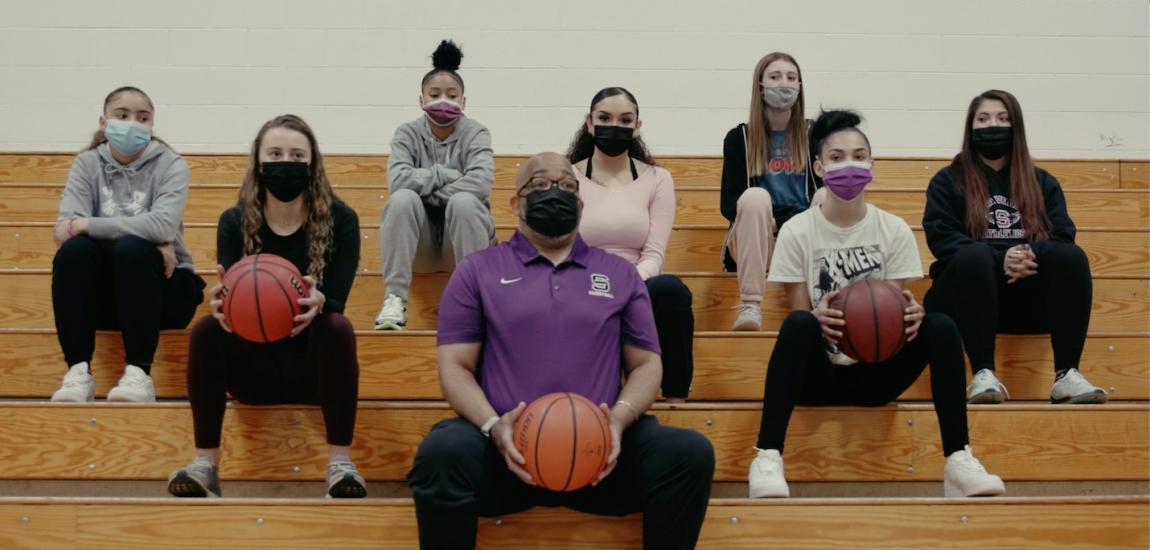
Since her debut in college sports, Doris Burke has steadily climbed the ladder at ESPN and other networks, making a mark as one of the most successful women in sports broadcasting. ThePostGame caught up with her in the middle of her stint as the sideline reporter for ESPN throughout the NBA playoffs. Like many stories of success, she told us hers came as a lucky opportunity: Her big break came when she was given a chance to fill in at the last minute for an overbooked announcer in a Big East game. She did "well enough", she says, that she was invited back. Since then, it's been nothing but up.
ThePostGame: You covered the Spurs and Warriors which featured, Steph Curry, one of the breakout stars of the playoffs. Did that make it more intriguing and fun to cover?
DORIS BURKE: What’s interesting to me about the NBA playoffs, inevitably to me, there’s a player who has shown flashes in the regular season or is on the verge of bigger and better things can you deliver in the moments when the pressure is the highest and the crowd is loudest team. It’s been extraordinary to watch an incredibly talented but humble guy who is a force to be reckoned with. What [made] it special with [Curry] is there were so many questions when he came out of Davidson: Was he physically strong enough? Did he get his shot off effectively against bigger opponents? All of the questions about Steph Curry have been answered.
TPG: Did you cover him as a college player at all?
BURKE: The neatest aspect of the Steph Curry story was I covered his brother, Seth Curry at Duke this season and called his breakout game at Madison Square Garden where he absolutely electrified New York fans. I called Steph’s game the next week and I asked what he thought of that game. He told me he was “in awe it”.
TPG: Do you know a lot of the guys well? How much do you get to talk to them outside those quick moments on the sidelines?
BURKE: What’s interesting about my NBA coverage is for the most part I have run into many of these men during their college days . I’m standing up pregame, I ran into DeJuan Blair, who I had gotten to know [when he was playing for] Pitt-- he was one of my favorite college basketball stars because he had always played with energy and passion and a smile on his face. But for a lot of the players, you don’t get to know beyond some of the surface stuff and you don’t get to know these people because you’re getting to know them in a confined space and in windows, but you always have a gut reaction to what you like about this person.
TPG: How do you come up with the questions?
BURKE: I’ve always approached the sideline job from the basketball angle. I’ve played and coached the game since I was 7 years old – it’s always been a big deal to me and I’ve always been playing coaching or watching it. When I’m doing sideline reporting, I listen very carefully to the things [Jeff Van Gundy] and [Mike Breen] are talking about in the broadcast. Jeff is one of the most respected minds in the game so if he’s saying anything, I’m taking notes on that. I’m also watching and taking notes in the game. I generally know what I’m going to ask if they’ve just missed their last seven shots eight possessions, for example. My questions may come from prep we’ve done, interviews we‘ve had with the players or coaches or comments from Jeff or Mike or a conversation I may have had with the player before the game.
TPG: Would you ever go back to coaching? A few other notable broadcasters have said they were thinking about it lately …
BURKE: I’ve always thought I would teach and coach. I was an assistant at Providence College but I wanted to get married and had a family and I didn’t think it would be possible to do both. Coaching still has aspects that intrigue me. I miss being invested with a group of people. One of my favorite aspects of coaching was an individual instructions. It’s incredibly gratifying to work on something have a player improve have that improvement translate to the game and see the joy and happiness that someone experiences … I do miss that aspect and I miss the competition everyone pulling in the same direction.
I’m enjoying the job I get to do at this moment. I’m supposed to do 70 games a year, I average about 80 … My daughter’s about to be 21 and for the last 20 plus years, I have been really wrapped up in being a mother to Sarah and Matthew, [so haven’t really had time to think about it.] I have one year left on my contract with ESPN …
TPG: How did you get into broadcasting in the first place?
BURKE: In a million years if you had seen me as a senior at Providence College, the last job you would have seen me was doing broadcasting. I was shy, I hated public speaking it would have been so far outside of my element it's amazing somehow that I ended up where I am.
TPG: Do you prefer to be an analyst or a sideline reporter?
BURKE: My preference is to be the analyst, it’s a far greater role and you’re sort of invested in the intricacies of the game. You can feel the intensity, the passion you’re sitting right there watching all that. I have come over the years to appreciate the value of the sideline job, but my training and upbringing was being the color analyst
TPG: How did you get started?
BURKE: I’m not sure I ever thought about it I started. I left coaching in 1990 and I was getting married that September. The year I left coaching they put Providence College women’s games on the radio and the athletic director, said ‘why don’t you give this a try?’ And it started that way and someone said you should try television women’s basketball college games. At the time I entered the field started to expand and so did the opportunities. But it wasn’t really until the advent of the WNBA in 1997 that was the first time where a woman could make a living doing the job that Dick Vitale or Bill Raftery could do. Between summer season of the WNBA and Big East women’s basketball, you could actually make a living doing that job.
TPG: Speaking of college, do you think that the NCAA will be around in ten years?
BURKE: I think one of the things I admire about the NBA is it is an organization that is constantly in self evaluation and it seems to me the NBA is incredibly proactive in looking at the problems … take for example the flopping rule. I don’t know what form the NCAA will take 10 years from now, I do find it very hard to imagine the organization will cease to exist. Logistically they run so many championships for the Olympic sports that are out of the minds of many American sports fans. There are too many other sports that need administrative and logistic support the NCAA to disappear. However the outcry of the membership of the NCAA shows there is enough force and movement to sort of correct some of the things that need correcting that I think it will exist but they need to get started on evaluating what needs to be changed.




